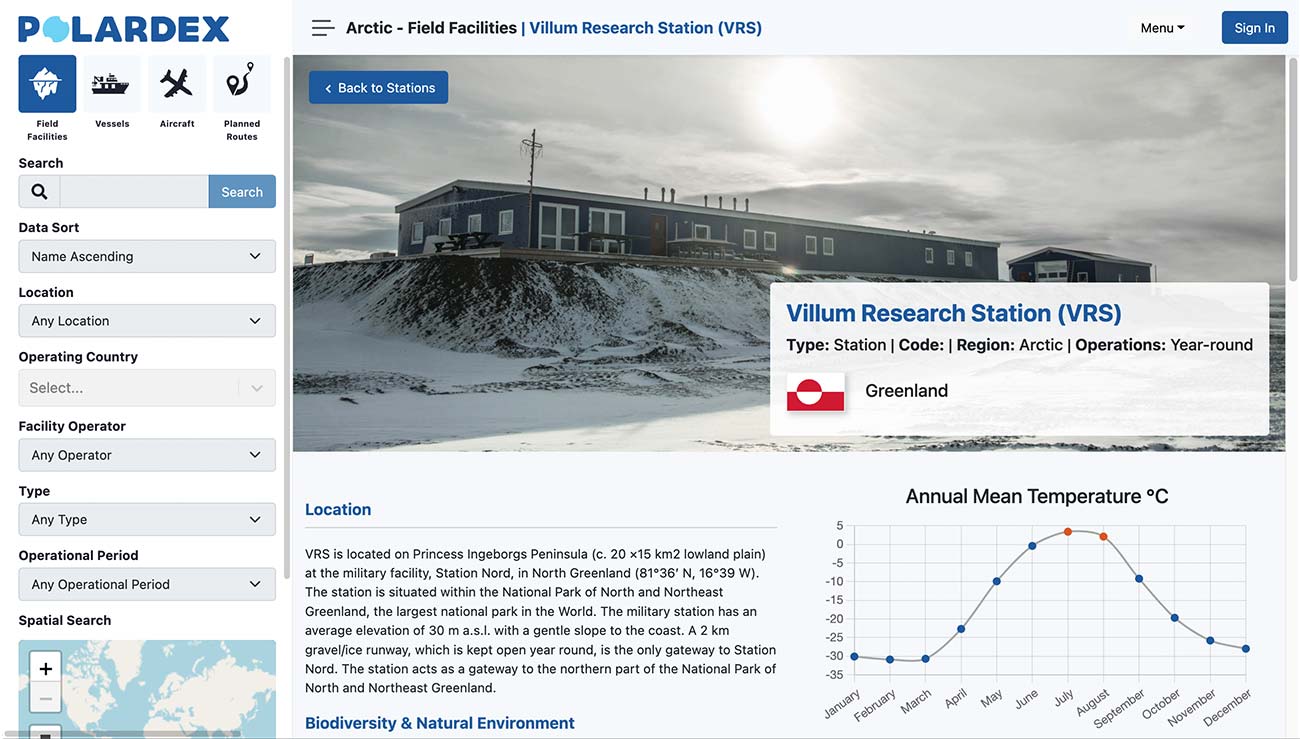Fizzee is pleased to announce the launch of Polardex, a new tool for polar scientists and planners. The platform lists key polar infrastructures in both the Arctic and the Antarctic, enabling logistics discovery and enhanced planning opportunities. Developed in cooperation with the European Polar Board, it integrates data from a host of high-profile polar science organisations into a cohesive, easy-to-use portal for discovery.

Easy logistics discovery in polar projection maps.
The idea for the platform came from the European Polar Board (EPB), which is an independent organisation focused on strategic scientific priorities in the Arctic and Antarctic. Recognising the need for a more visual tool to host infrastructure data, Polardex was conceived and developed to fill that gap and it’s built to evolve… the platform has been well received since its launch and we’re looking forward to helping it grow as a key tool for researchers and scientists on a global scale.
A variety of technologies were used to build the application, including React, Node JS, MongoDB (a very flexible database when handling mixed data sources with built-in geospatial features), and Leaflet to provide interactive maps in appropriate polar projections. The bespoke user interface utilises the Next.js framework, one of the most advanced React frameworks available right now and a particular favourite of ours.

Polardex has detailed field facility data.
Whilst Fizzee handled the software development, the creation of Polardex has been a truly collaborative affair, with many partners contributing to its design and overall development. Partners in Polardex’s development and contributors include the Southern Ocean Observing System (SOOS), Svalbard Integrated Arctic Earth Observing System (SIOS), the International Network for Terrestrial Research and Monitoring in the Arctic (INTERACT), EU-PolarNet 2, the Council of Managers of National Antarctic Programs (COMNAP), the International Association of Antarctica Tour Operators (IAATO), Isaaffik, the Arctic Research Icebreaker Consortium (ARICE), EUROFLEETS, the Alfred Wegener Institute, Helmholtz Centre for Polar and Marine Research (AWI), and the British Antarctic Survey (BAS).
We’re excited to see what’s next for this application and to continue to grow what we hope will be a valuable resource for the polar science community. You can check it out at: polardex.org.